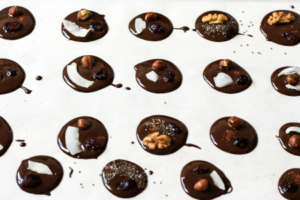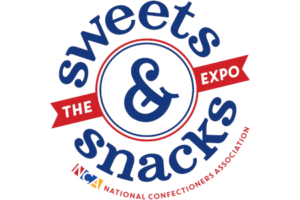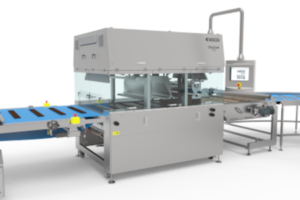Taste is still king when a consumer purchases a product there is no doubting this but, increasingly they’re looking for clean label, healthy, sustainable ingredients and the industry is working hard to meet those expectations.
This brings many challenges for NPD (New Product Development) technologists. How do you remove one ingredient and replace it with another, whilst keeping the fundamental characteristics the same, meeting the commercial needs of the business and ultimately ensuring that the finished product gets that all-important consumer approval?
One area that is of focus for the consumer alongside, sugar reduction, salt reduction and clean labels is Palm Oil. High profile global campaigns surrounding the use of palm oil in products has gained even more momentum through 2019 and whilst many food and drink manufactures have worked for to ensure that their supplies of palm oil were certified by the RSPO (Roundtable on Sustainable Palm Oil) there is a growing call to remove palm oil from products totally.
To understand why removing palm oil from products totally is such a big challenge you need to understand where and how its usage came about. In the 1950’s the UK’s food technologists began to experiment with the product, largely driven by the growth of commercial plantations in Asia.
This ingredient and the growth of these commercial plantations provided the food and beverage industry with a low-cost product that would potentially be readily available, the ability to bring these two benefits to production and supply chains was something that enabled manufacturers to meet a growing demand from consumers and retailers.
These benefits combined with the properties of palm oil – the only vegetable oil which is almost 50% saturated fat and 50% unsaturated fat – meant that brands could introduce the consumer to a whole new world of products, delivering longer shelf lifes, products that could be suitable for vegetarians and vegans as well as a product that was available at a perceived good retail price.
The ‘desire’ to remove palm oil from food and beverage products is largely driven by the understanding that the demand of the world today is such that the deforestation of larger parts of the rain forests is having an almost un-reversible effect on our planet, both in terms of natural carbon gathering rain forests through to driving orangutans towards extinction.
It is argued frequently that the intention in using sustainable palm oil and the commitment by manufactures to do so is the correct approach however, reports over recent years have sighted that even with these certifications and bodies it is almost impossible to prove that there is real sustainability.
In a world where we better understand the effects we have on our planet, this desire to be mindful of the planets natural resources and the effect we have on it, is something that strikes a chord with consumers and, is increasingly something they in turn demand from the food and beverage industry.
Yet interestingly it is widely understood that, the UK and Europe’s consumption of palm oil is around 27% of all that is produced and in a recent report in ‘The Grocer’, Inke van der Sluijs – head of EU operations at RSPO stated that “the net effect of moving away is negative” and “ it’s not solving the problem it’s making it worse”.
The report goes on to describe how by moving totally away from palm oil we are only really moving the problem along, which pushes the challenges faced on resources to a different area and, that these challenges could be worse than those faced now.
Understanding these wider challenges, whilst being mindful of the genuine desire by brands and in turn the food and beverage industry to demonstrate to consumers its commitment to listen and make positive changes, the team at Knighton Foods have been able to produce a product that reduces the amount of palm oil required in a formulation by up to 30%.
The ability to remove up to 30% of the palm oil in a range of products including bakery products for example not only allows a brand and manufacturers to demonstrate this commitment to consumers but interestingly because, as shown earlier palm oil is almost 50/50 saturated and unsaturated fat it could allow products to meet ‘The Public Health Responsibility Deal’ following the ‘Call to action on Obesity in England’ from 2011.
Cryogenic Spray Crystallisation may help to reduce saturated fat in foods
Reducing the amount of saturated fat in a wide range of products is a key area of concern for the Government, food manufacturers and health-conscious consumers. In the long term, a diet that is high in saturated fat can raise blood cholesterol levels, which is a risk factor for heart and circulatory diseases.
However, reducing the saturated fat content, while maintaining the taste and texture that consumers’ desire, is a challenge. The emerging technology of Cryogenic Spray Crystallisation may have the answer.
At Knighton Foods a process called Cryogenic Spray Crystallisation is used, whereby atomised liquid fats and oils come into contact with liquid nitrogen. The atomised feed particles then solidify instantly into free flowing particles. The particles have properties that resemble the physical form of a hardened, higher saturated fat.
This approach can be used for converting more desirable lower saturated liquid fats/oils into solid fat products, which can then be used in applications where a hardened, higher saturated fat would normally be required.
Cryogenic Spray Crystalisation produces fats that contain larger numbers of much smaller fat crystals than can be obtained using any other conventional technology. This confers on the fats an enhanced performance over a wide range of functionality’s
Cryogenic Spray Crystallisation allows Solid Fat Content (SFC) reductions of up to 30% in a range of baked products (biscuits, puff pastry, and bread) without changes in appearance, mouth-feel or eating quality of the final product
Knighton Foods is able to produce these enhanced functionality fats on their Cryogenic Spray Crystalliser.
Crystallised Palm Stearin produced using the Cryogenic Spray Crystalliser have undergone thorough validated evaluation and baking assessments at Campden BRI Ltd in the past.
Fats and oils will continue to be a necessary ingredient and, more specifically the WWF states that palm oil is found in around half of the packaged goods on super market shelves. In bakery for example fats and oils are used for shortening and biscuit fillings. The volumes used within these products can, in some cases be the most expensive ingredient in the whole process.
The team at Knighton Foods are excited by the opportunity that this new product can bring. Not only will it allow manufacturers to make a change to their formulations, but it may be the solution that is needed.
The ability to reduce the amount of palm oil in a formulation without the need to invest in redeveloping in totality a product is just one of the many benefits that this Knighton Foods product can deliver.









